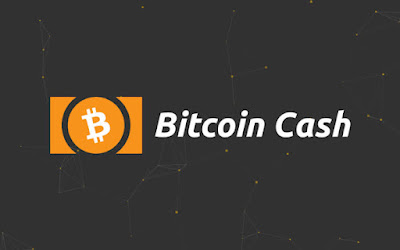What is Bitcoin Cash ABC (BCHA)?
Bitcoin ABC is a cryptocurrency created in 2018. It is the result of a software upgrade to the Bitcoin Cash (BCH) protocol that resulted in a hard fork, which also created Bitcoin SV.
In 2018, a software developer called ABC Bitcoin proposed an upgrade to the Bitcoin Cash protocol. The changes included potential scaling solutions for the cryptocurrency by changing the way its blockchain stored information. The upgrades were endorsed by Roger Ver and Bitcoin.com. They also had the potential to allow software developers to create smart contract software platforms on the Bitcoin Cash blockchain. This proposal was met with contentious feedback, especially from prominent Bitcoin Cash developer nChain and its founder, Craig Wright. In response, nChain made its own proposal for a software upgrade, which they dubbed Bitcoin SV (the SV being short for "Satoshi's Vision"), which they argued would be closer to Satoshi Nakamoto's original vision. On November 15th, 2018, Bitcoin Cash forked, which began an intense conflict between miners supporting Bitcoin ABC and Bitcoin SV respectively.
History Of Bitcoin Cash ABC.
In 2010, the average size of a block on Bitcoin's blockchain was less than 100 KB and the average fee for a transaction amounted to just a couple of cents. This made its blockchain vulnerable to attacks, consisting entirely of cheap transactions, that could potentially cripple its system.
To prevent such a situation, the size of a block on bitcoin’s blockchain was limited to 1 MB. Each block is generated every 10 minutes, allowing for space and time between successive transactions. The limitation on size and time required to generate a block added another layer of security on bitcoin’s blockchain.
But those safeguards proved to be a hindrance when bitcoin gained mainstream traction on the back of greater awareness of its potential and enhancements to its platform. The average size of a block had increased to 600K by Jan. 2015. The number of transactions using Bitcoin surged, causing a buildup of unconfirmed transactions. The average time to confirm a transaction also moved upwards. Correspondingly, the fee for transaction confirmation also increased, weakening the argument for bitcoin as a competitor to expensive credit card processing systems. (Fees for transactions on bitcoin’s blockchain are specified by users. Miners typically push transactions with higher fees to the front of the queue in order to maximize profits.)
Two solutions were proposed by developers to solve the problem: to increase the average block size or to exclude certain parts of a transaction to fit more data into the blockchain. The Bitcoin Core team, which is responsible for developing and maintaining the algorithm that powers bitcoin, blocked the proposal to increase the block size. Meanwhile, a new coin with a flexible block size was created. But the new coin, which was called Bitcoin Unlimited, was hacked and struggled to gain traction, leading to doubts about its viability as a currency for daily transactions.
The first proposal also drew sharp and diverse reactions from the bitcoin community. Mining behemoth Bitmain was hesitant to support Segwit implementation in blocks because it would affect sales for its AsicBoost miner. The machine contained a patented mining technology that offered a “shortcut” for miners to generate hashes for crypto mining using less energy.10 However, Segwit makes it more expensive to mine Bitcoin using the machine because it makes transaction reordering difficult.
Amidst a war of words and staking out of positions by miners and other stakeholders within the cryptocurrency community, Bitcoin Cash was launched in August 2017. Each Bitcoin holder received an equivalent amount of Bitcoin Cash, thereby multiplying the number of coins in existence. Bitcoin Cash debuted on cryptocurrency exchanges at an impressive price of $900. Major cryptocurrency exchanges, such as Coinbase and itBit, boycotted Bitcoin Cash and did not list it on their exchanges.
But it received vital support from Bitmain, the world’s biggest cryptocurrency mining platform. This ensured a supply of coins for trading at cryptocurrency exchanges when Bitcoin Cash was launched. At the height of cryptocurrency mania, Bitcoin Cash’s price skyrocketed to $4,091 in December 2017.
Paradoxically enough, Bitcoin Cash itself underwent a fork slightly more than a year later due to the same reason it split from Bitcoin. In Nov. 2018, Bitcoin Cash split into Bitcoin Cash ABC and Bitcoin Cash SV (Satoshi Vision). This time around, the disagreement was due to proposed protocol updates that incorporated the use of smart contracts onto bitcoin’s blockchain and increased the average block size.
Bitcoin Cash ABC uses the original Bitcoin Cash client but has incorporated several changes to its blockchain, such as Canonical Transaction Ordering Route (CTOR) – which rearranges transactions in a block to a specific order.
Tags:
Cryptocurrency
